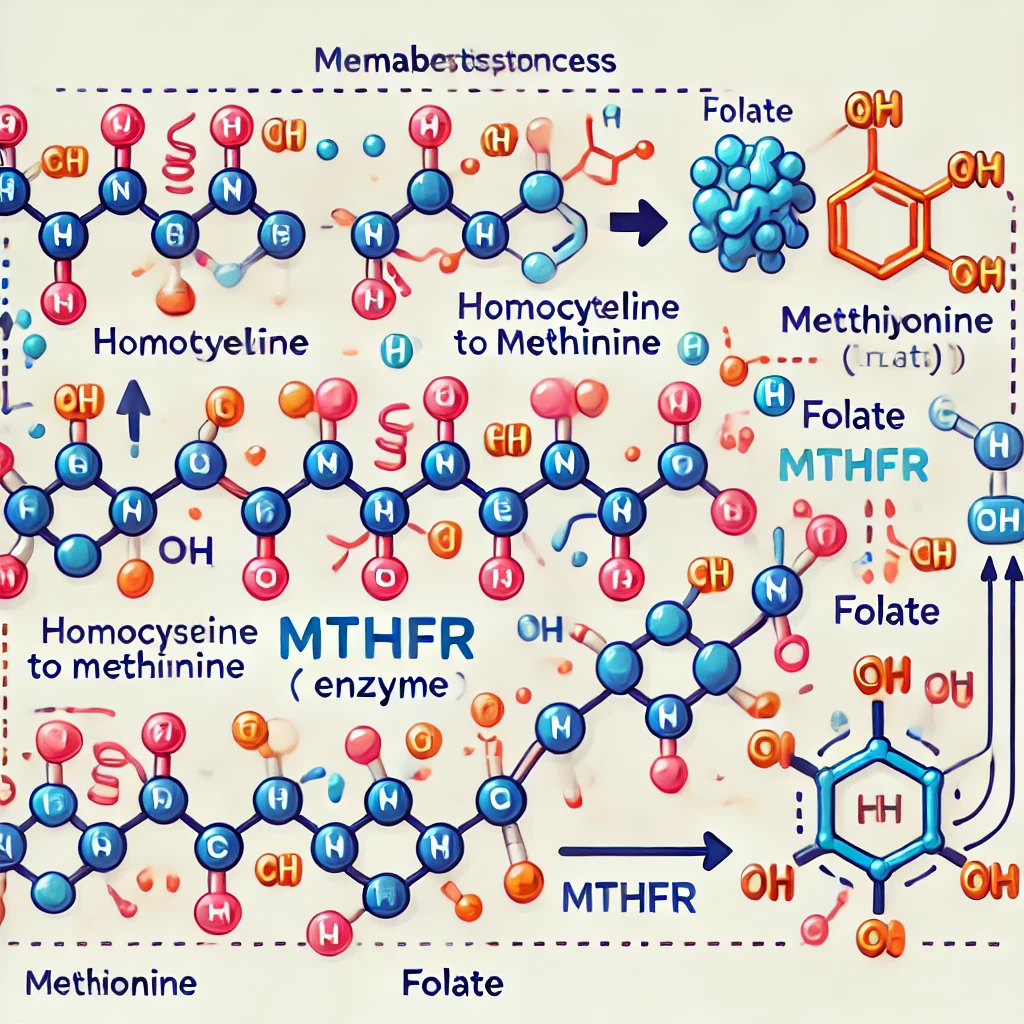In the world of genetics, the MTHFR gene has gained significant attention due to its vital role in the body’s metabolic processes. The Methylenetetrahydrofolate Reductase (MTHFR) gene is crucial for a process known as methylation, which affects everything from DNA production to the conversion of certain molecules within the body. Variants in this gene can influence health in various ways, leading to discussions about the importance of testing and potential interventions.
The Role of MTHFR
The MTHFR gene provides instructions for making an enzyme that plays a key role in processing amino acids, the building blocks of proteins. This enzyme is essential for converting homocysteine, a potentially toxic substance, into methionine, a useful amino acid that the body needs for growth and metabolism. Methionine is also a precursor for S-adenosylmethionine (SAMe), a compound involved in methylation, which is critical for DNA regulation and repair, as well as the metabolism of neurotransmitters.
Common Variants and Their Implications
There are several variants of the MTHFR gene, but two of the most impactful are C677T and A1298C. These variants can reduce the activity of the enzyme, which can lead to high levels of homocysteine and low levels of folate in the blood. This imbalance has been associated with various health issues, including:
- Heart Disease: Elevated homocysteine levels have been linked to an increased risk of heart disease, as they can contribute to arterial damage and blood clots.
- Pregnancy Complications: Low folate levels can lead to complications such as neural tube defects in developing fetuses.
- Mental Health Issues: Some studies suggest that altered methylation processes can affect mental health, potentially contributing to conditions like depression and anxiety.
Testing and Management
Testing for MTHFR mutations is usually performed through a simple blood test. Understanding one’s MTHFR status can be a valuable piece of information for managing health, particularly in planning pregnancy or addressing cardiovascular risk factors.
Management strategies typically focus on dietary adjustments to manage homocysteine levels. These may include:
- Increased Folate Intake: Consuming foods rich in folate or taking folic acid supplements can help manage folate levels and mitigate the effects of MTHFR variants.
- B-Vitamin Supplementation: Vitamins B6 and B12, along with folic acid, can help reduce homocysteine levels.
- Lifestyle Changes: Regular exercise and avoiding smoking or excessive alcohol consumption can also help manage homocysteine levels.

While the MTHFR gene’s impact on health is significant, it’s important to consider genetic information as just one part of a larger health puzzle. Those with MTHFR mutations should consult healthcare providers to understand their specific needs and manage their health effectively. As research advances, the understanding of MTHFR and its implications continues to evolve, offering new insights into how genetics can influence our overall health and well-being.
